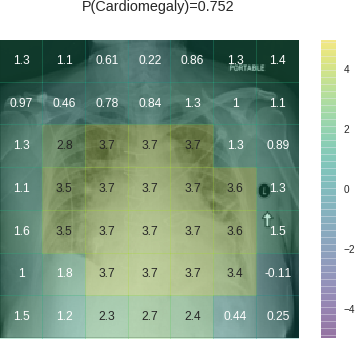Showing posts with label technology and human values. Show all posts
Showing posts with label technology and human values. Show all posts
Tuesday, December 12, 2023
Friday, May 5, 2023
Is disruption dead?
Writes Bessen: The New Goliaths: Evidence of slow diffusion of innovation indicates US policy framework is out of balance. https://t.co/7IaKZdYwzS #Amazon via @Amazon
— Jack Vaughan (@JackIVaughan) May 5, 2023
Monday, November 18, 2019
Using satellite indexes to study global forestation, fires
by Samuel Hislop 1,2,3,*,Simon Jones 1,Mariela Soto-Berelov 1,Andrew Skidmore 2,4OrcID,Andrew Haywood 5OrcID andTrung H. Nguyen 1,3
This paper presents a straight-forward method for comparing the merits of various spectral indices by considering all of the pixels as a single distribution. In this research, we made use of existing reference data to select our candidate pixels, but the method itself does not rely on detailed reference data. The main advantage in using these particular pixels was that they had been systematically sampled, based on plots stratified by bioregion and forest tenure. Thus, they are an accurate reflection of the entire forest estate in the study area. However, by considering all of the pixels as equal participants to a single distribution, detailed information in individual pixels may be lost. Nonetheless, the purpose of the exercise was not to derive detailed information about forest dynamics, but to determine which indices may be best suited for this task. Of the indices that were tested, we consider NBR as the most reliable index for tracking fire disturbance and recovery in sclerophyll forests, due to its consistently high performance across the range of tests performed.
https://www.mdpi.com/2072-4292/10/3/460/htm
This paper presents a straight-forward method for comparing the merits of various spectral indices by considering all of the pixels as a single distribution. In this research, we made use of existing reference data to select our candidate pixels, but the method itself does not rely on detailed reference data. The main advantage in using these particular pixels was that they had been systematically sampled, based on plots stratified by bioregion and forest tenure. Thus, they are an accurate reflection of the entire forest estate in the study area. However, by considering all of the pixels as equal participants to a single distribution, detailed information in individual pixels may be lost. Nonetheless, the purpose of the exercise was not to derive detailed information about forest dynamics, but to determine which indices may be best suited for this task. Of the indices that were tested, we consider NBR as the most reliable index for tracking fire disturbance and recovery in sclerophyll forests, due to its consistently high performance across the range of tests performed.
https://www.mdpi.com/2072-4292/10/3/460/htm
Monday, August 19, 2019
Shores of ML
Limits of ML? - I noticed this last week, when looking for Barnum's Bio, that a chap had re-published it and attached his patent. Writer David Streitfield here investigates the rape of Orwell's work.
"Amazon said in a statement that “there is no single source of truth” for the copyright status of every book in every country, and so it relied on authors and publishers to police its site. The company added that machine learning and artificial intelligence were ineffective when there is no single source of truth from which the model can learn." Really? 1984? https://nyti.ms/33KyQ6v
"Amazon said in a statement that “there is no single source of truth” for the copyright status of every book in every country, and so it relied on authors and publishers to police its site. The company added that machine learning and artificial intelligence were ineffective when there is no single source of truth from which the model can learn." Really? 1984? https://nyti.ms/33KyQ6v
Wednesday, July 31, 2019
On the matter of GDPR
Here are some takes from my work on the matter of GDPR at SearchDataManagement.com
https://searchdatamanagement.techtarget.com/opinion/GDPR-privacy-concerns-still-brewing-on-laws-first-birthday
https://searchdatamanagement.techtarget.com/podcast/Hadoop-data-governance-services-surface-in-wake-of-GDPR
https://searchdatamanagement.techtarget.com/opinion/GDPR-compliance-requirements-drive-new-winds-of-data-privacy
https://searchdatamanagement.techtarget.com/feature/Data-expert-GDPR-deadline-is-an-opportunity-not-a-burden
https://searchdatamanagement.techtarget.com/opinion/GDPR-privacy-concerns-still-brewing-on-laws-first-birthday
https://searchdatamanagement.techtarget.com/podcast/Hadoop-data-governance-services-surface-in-wake-of-GDPR
https://searchdatamanagement.techtarget.com/opinion/GDPR-compliance-requirements-drive-new-winds-of-data-privacy
https://searchdatamanagement.techtarget.com/feature/Data-expert-GDPR-deadline-is-an-opportunity-not-a-burden
Monday, August 20, 2018
How well can neurals generalize across hospitals?
Which features in any quantity influence a convolutional neural network’s (CNN’s) decision? To find the answer in radiology, work is needed, writes researcher John Zech on Medium. The matter gains increased importance as researchers look to ‘go big’ with their data, and to create models based on X-rays obtained from different hospitals.
Before tools are used to crunch big data for actual diagnosis "we must verify their ability to generalize across a variety of hospital systems" writes Zech.
Among findings:
that pneumonia screening CNNs trained with data from a single hospital system did generalize to other hospitals, though in 2 / 4 cases their performance was significantly worse than their performance on new data from the hospital where they were trained.
he goes further:
CNNs appear to exploit information beyond specific disease-related imaging findings on x-rays to calibrate their disease predictions. They look at parts of the image that shouldn’t matter (outside the heart for cardiomegaly, outside the lungs for pneumonia). Initial data exploration suggests they appear rely on these more for certain diagnoses (pneumonia) than others (cardiomegaly), likely because the disease-specific imaging findings are harder for them to identify.
These findings come against a backdrop: An early target for IBM’s Watson cognitive software has been radiology diagnostics. Recent reports question the efficacy thereof. Zech and collaborators’ work shows another wrinkle on the issue, and the complexity that may test estimates of early success for deep learning in this domain. - Vaughan
Related
https://arxiv.org/abs/1807.00431
https://medium.com/@jrzech/what-are-radiological-deep-learning-models-actually-learning-f97a546c5b98
https://en.wikipedia.org/wiki/Convolutional_neural_network
https://www.clinical-innovation.com/topics/artificial-intelligence/new-report-questions-watsons-cancer-treatment-recommendations
Sunday, August 19, 2018
DeepMind AI eyes ophthalmological test breakthrough
 |
| Eye ball to eye ball with DeepMind. |
DeepMind, the brainy bunch of British boffins whom Google pickedup to carry forward the AI torch, has reported in a scientific journal that it succeeded in employing a common ophthalmological tests to screen for many health disorders.
So reports Bloomberg.
DeepMind’s software used two separate neural networks, a kind of machine learning loosely based on how the human brain works. One neural network labels features in OCT images associated with eye diseases, while the other diagnoses eye conditions based on these features.
Splitting the task means that -- unlike an individual network that makes diagnoses directly from medical imagery – DeepMind’s AI isn’t a black box whose decision-making rationale is completely opaque to human doctors, [a principal said].
The group, which encountered controversy over its use of patient data in the past, said it has cleared important hurdles and hopes to move to clinical tests in 2019.
Related
https://www.bloomberg.com/news/articles/2018-08-13/google-s-deepmind-to-create-product-to-spot-sight-threatening-disease
Thursday, March 22, 2018
Facebook faces breach
 |
| Bannon at the controls of the Cambridge Analytica voter vaporizer. |
THere is a train coming down the track.One is Cambridge Analytca - which is a big data operation HQ'd in Britain. The other is the IRA, the Internet Research Agency, a Russian social media hack.
Cambridge Analytica comprises a bunch of statisticians and programmers who found some warm fuzzy US political venture money and joined forces with an impish devil.
They set up a data gathering project, “thisisyourdigitallife,” that offered a personality prediction, and billed itself on Facebook as “a research app used by psychologists.” (I'd add a bit more on the brains and funding of thisisyourditigallife if I get the chance.) The test could go something like: Do you like Manfred Mann AND Joni Mitchell? You are a precious introvert. What about Ted Nugent AND Deep Purple? You are outgoing extrovert. I digress.
thisisyourditigallife paid users small sums to take a personality quiz and download an app, which would scrape some private information from their profiles and those of their friends - activity that Facebook more or less kinda permitted at the time.
That profile helped them to figure out if you were a conspiracy buff, and that in that case you could be pitched posts that fed that inclindation, which you could have shared, and so on.
This resulted in 50 million raw profiles that were forwarded to Cambridge Analytica... A principle officer in Cambridge Analytica was Steve "The Imp of the Perverse" Bannon. (It should be noted that their VC backers originally sought to help Ted Cruz - it took a while to find the right potion or carrier.)
Here comes the second train: The Internet Research Agency aka Glavset, the Trolls from Olgino or kremlebots. It has been charged by US DoJ with criminal interfrence with the 2016 election. These trolls thrived on hacked data like such drawn from innocouous personality tests you might take online.
As far as I am aware, a link between IRA and Cambridge Analytica has not been established - I stand before you today to sibmit that it seems like a distinct possibility. (It is all dark and complicated - not like the good old days where the president had a tape recorder rolling while he plotted nefariously, and there was a fully functioning congress and opposition party also by the way.)
If you read the attached Facebook press release you get some of the gist of what is afoot in the convoluted James Bond scenario called Cambridge Analytica.
Since the first release there has been an amendment. One press account described what happened as a hack or a hijack, so Facebook responded. What Facebook asks you to do is to not think of all this as a hack of your data but to instead understand that their policies were insuficient 2-4 years ago but have been updated. Democracy in America at Facebook HQ today is about covering its hinder.
See Facebook release March 16, 2018 - Suspending Cambridge Analytica and SCL Group from Facebook
https://newsroom.fb.com/news/2018/03/suspending-cambridge-analytica/
Facebook spurred GDPR, in only in small part. Let's tune into a recent podcast I did on that topic.
Monday, February 19, 2018
Cybernetic Sutra
I'd had an opportunity in college days to study comparative world press under professor Lawrence Martin Bittman, who introduced BU journalism students to the world of disinformation, a discipline he'd learned first hand in the 1960s, before his defection to the West, as a head of Czech Intelligence. We got a view into the information wars within the Cold War. This gave me a more nuanced view of the news than I might otherwise have known. Here I am going to make a jump.
I'd begun a life-long dance with the news.
I'd also begun a life-long study of cybernetics.
And lately the two interests have begun oddly to blend.
It was all on the back of Really Simple Syndication -RSS- and its ability to feed humongous quantities of online content in computer-ready form-It made me a publisher, as able as Gutenberg, and my brother a publisher, and my brother-in-law a publisher, and on ...
Cybernetics was a promising field of science that seemed ultimately to fizzle. After World War II, led by M.I.T.'s Norbert Wiener and others, cybernetics arose as, in Wiener's words, "the scientific study of control and communication in the animal and the machine."
It burst rather as a movement upon the mass consciousness at a time when fear of technology and the dehumanization of science were a growing concern. - As the shroud of war time secrecy dispersed, in 1948 penned Cybernetics, which was followed by a popularization.
Control, communication, feedback, regulation. It took its name for the Greek root cyber. Wiener - Brownian motion - artillery tables - development of the thermostat, autopilot, differential analyzer, radar, neural networks, back propagation.
Cybernetics flamed out in a few years, tho made an peculiar reentry in the era of the WWW. Flamed out but, somewhat oddly, continued as an operational style in the USSR for quite some time more. Control, communication, feedback, regulation played out there somewhat differently.
A proposal for a Soviet Institute of Cybernetics included "the subjects of logic, control, statistics, information theory, semiotics, machine translation, economics, game theory, biology, and computer programming."1 It came back to mate with cybernetics on the web in the combination of agitprop and social media, known as Russian meddling, that slightly tipped the scales, arguably, of American politics.
1 http://web.mit.edu/slava/homepage/reviews/review-control.pdf
I'd begun a life-long dance with the news.
I'd also begun a life-long study of cybernetics.
And lately the two interests have begun oddly to blend.
It was all on the back of Really Simple Syndication -RSS- and its ability to feed humongous quantities of online content in computer-ready form-It made me a publisher, as able as Gutenberg, and my brother a publisher, and my brother-in-law a publisher, and on ...
Cybernetics was a promising field of science that seemed ultimately to fizzle. After World War II, led by M.I.T.'s Norbert Wiener and others, cybernetics arose as, in Wiener's words, "the scientific study of control and communication in the animal and the machine."
It burst rather as a movement upon the mass consciousness at a time when fear of technology and the dehumanization of science were a growing concern. - As the shroud of war time secrecy dispersed, in 1948 penned Cybernetics, which was followed by a popularization.
Control, communication, feedback, regulation. It took its name for the Greek root cyber. Wiener - Brownian motion - artillery tables - development of the thermostat, autopilot, differential analyzer, radar, neural networks, back propagation.
Cybernetics flamed out in a few years, tho made an peculiar reentry in the era of the WWW. Flamed out but, somewhat oddly, continued as an operational style in the USSR for quite some time more. Control, communication, feedback, regulation played out there somewhat differently.
A proposal for a Soviet Institute of Cybernetics included "the subjects of logic, control, statistics, information theory, semiotics, machine translation, economics, game theory, biology, and computer programming."1 It came back to mate with cybernetics on the web in the combination of agitprop and social media, known as Russian meddling, that slightly tipped the scales, arguably, of American politics.
1 http://web.mit.edu/slava/homepage/reviews/review-control.pdf
Sunday, February 4, 2018
Pixie dust of technology
Back in the day, the Obama campaign got good press for its efforts to employ technology and then-new social media platforms to organize a large political base. Part of the effort was Dipayan Ghosh, who served in the Obama White House. Like others, Ghosh is having second - or deeper thoughts - on the subject. In a report on "#DigitalDeceit" he and a coauthor ruminate on the Internet giant's (Google's and Facebook's) alignment with advertising motivations - and the resultant penchant for misinformation. Comment: Technology always exists within the a larger context, and will eventually be subsumed thereto. What it will do is cast a haze of pixie dust over ethos, established mores, institutional memory. The haze gradually recedes. -- Jack Vaughan
Sunday, September 3, 2017
Forensic analytics
While at Bell Labs in the 1980s, Dalal said, he worked with a team that looked back on the 1986 Challenger space shuttle disaster to find out if the event could have been predicted. It is well-known that engineering teams held a tense teleconference the night before the launch to review data that measured risk. Ultimately, a go was ordered, even though Cape Canaveral, Fla., temperatures were much lower than in any previous shuttle flight. A recent article looks at the issues with an eye on how they are related to analytics today.
http://searchdatamanagement.techtarget.com/opinion/Making-connections-Big-data-algorithms-walk-a-thin-line
http://searchdatamanagement.techtarget.com/opinion/Making-connections-Big-data-algorithms-walk-a-thin-line
Sunday, June 18, 2017
Data, like people can lie
Three cheers for the West Virginia University team whose research caused the net to enclose upon the existential Euro varmints of VW. Who used software to neuter U.S. emission tests (and probably laugh about it over bears). Data, like people can lie. Data exists within the construct of the civilization around it - What's the bet that a few Euro's in an off shore bank will cause Trump and Bannion to cut research funding in to emissions? - Jack Vaughan
https://www.nytimes.com/2017/05/06/business/inside-vws-campaign-of-trickery.html
https://www.nytimes.com/2017/05/06/business/inside-vws-campaign-of-trickery.html
Sunday, June 4, 2017
Technology and Koyaanisqatsi
 |
| By U.S. HUD |
I suppose there is more - that there is a unified theory gluon waiting, something like Capital, or Greed. But let's start with some simplicity. Asking: Where is harmonious technology and humanism to be found, and where and why does Koyannisqatsi begin to emerge. - Jack Vaughan
Subscribe to:
Posts (Atom)






